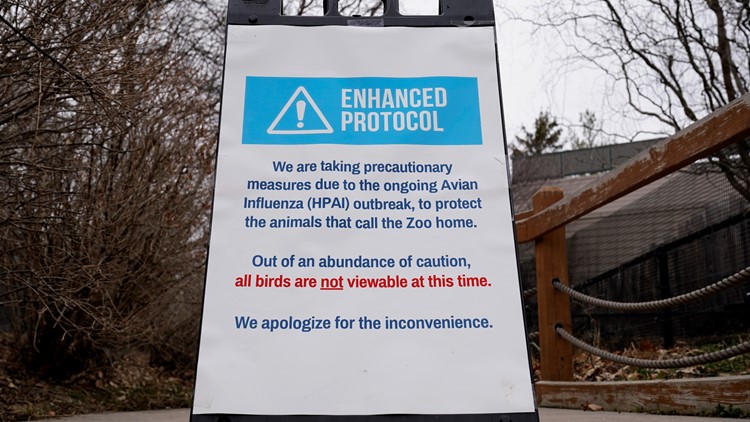World Health Organization calls for ‘higher vigilance’ for H5N1

Avian influenza, also known as avian influenza, is usually spread between sick poultry but can occasionally be transmitted from poultry to humans.
PHNOMPEN, Cambodia — A senior World Health Organization official, reacting to the death of an 11-year-old girl in Cambodia who contracted avian flu, said on Friday that the recent global spread of the virus and infection to humans is “a cause for concern.”
Dr Sylvie Briand, WHO Director of Epidemic and Pandemic Preparedness and Prevention, said the UN agency “is in close contact with the Cambodian authorities to learn more about the outbreak.”
Speaking ahead of a meeting in Geneva on influenza vaccines, Briand called the global situation with the virus “worrisome given the widespread occurrence of the virus in birds around the world and the increase in case reports in mammals, including humans.”
“WHO takes the risk of this virus seriously and is calling on all countries to be extra vigilant,” she said.
Independent experts also expressed concern about the wave of avian influenza that has spread across much of the world since late 2021 and poses a potential risk to public health.
A Cambodian girl from a village in the southeastern province of Prey Veng died on Wednesday in a hospital in the capital Phnom Penh shortly after tests confirmed she had H5N1 avian influenza A, according to Cambodia’s health ministry. She became ill on February 16, and as her condition worsened, she was admitted to the hospital with a temperature of up to 39 degrees Celsius (102 degrees Fahrenheit), a cough, and a sore throat.
On Friday, health authorities said the girl’s father had tested positive for the virus but had no major symptoms.
Avian influenza, also known as avian influenza, is usually spread between sick poultry but can occasionally be transmitted from poultry to humans. The recent discovery of infections in various mammals, including one at a large mink farm in Spain, has raised concerns among experts that the virus could evolve to spread more easily between humans and potentially trigger a pandemic.
Health ministry spokesman Lee Sovann told The Associated Press that the Cambodian father’s case is under investigation and it is not yet known how he became infected. He was placed in isolation at the local district hospital for observation and treatment.
The ministry team collected samples from 12 people from the dead girl’s village who were known to have had direct contact with her, and on Friday, lab tests confirmed that only her father was infected.
Health officials have expressed concern about the wave of bird flu that has spread around the world over the past year and a half, but consider the current risk to humans to be low.
“Over the past few months and years, there has been a massive global problem of wild and domestic birds with the current H5N1 avian influenza virus that has infected many people; despite this, it is remarkable how few people have become infected,” said Professor James Wood, chair of veterinary medicine at the University of Cambridge in England, in an email.
“While this case in Cambodia is tragic, we expect there to be few clinical cases with such a widespread infection. It is clear that the virus needs careful monitoring and surveillance to ensure it has not mutated or recombined, but the limited number of human cases has not increased appreciably and this case does not in itself indicate that the global situation has suddenly changed.” Wood added.
According to the World Health Organization, between 2003 and 2014, 56 human cases of avian influenza were reported in Cambodia, 37 of which were fatal. Worldwide, about 870 human infections and 457 deaths in 21 countries have been reported to the WHO, with an overall case fatality rate of 53%. But the pace has slowed, with about 170 infections and 50 deaths over the past seven years. In the vast majority of cases, infected people received it directly from infected birds.
“Between 2005 and 2020, 246 million poultry died or were culled due to bird flu,” according to the World Organization for Animal Health.
“Since October 2021, an unprecedented number of outbreaks have been reported in several regions of the world, covering new geographic areas and having a devastating impact on animal health and welfare,” the Paris-based agency said on its website.
The U.S. Centers for Disease Control and Prevention agrees that the current H5N1 outbreak is mostly related to animal health.
“However, people should avoid direct and close contact with sick or dead wild birds, poultry and wild animals,” he warns on his website. — People should not eat raw or undercooked poultry or poultry products, including raw eggs. poultry, poultry products and eggs are safe.”
Dallas Press News – Latest News:
Dallas Local News || Fort Worth Local News | Texas State News || Crime and Safety News || National news || Business News || Health News
texasstandard.news contributed to this report.









